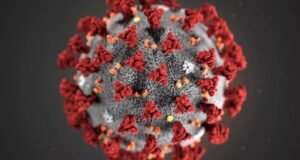
An individual who has suffered from a heart attack which then led to severe pain a year after the incident, is more likely to die within the eight years afterward, according to a new study.
The Journal of the American Heart Association published a study on Thursday which has shown results proving that people who reported extreme pain a year after their heart attack – even pain that was not associated with heart problems – are more than twice as likely to die in the 8½-year study period, reports CNN.
Although the number of people who survive heart attacks has increased over the years, there has been little research on the impact of pain on mortality after a heart attack, says CNN.
For the study, the data was collected from 18,376 heart attack patients who were under the age of 75. They were tracked with the help of a Swedish registry between 2004 and 2013.
These patients were asked to fill out questionnaires that assessed their pain levels during their follow-up appointments. However, the survey didn’t ask how long the pain lasted.
The researchers revealed that pain was not an uncommon factor among heart attack survivors. Approximately 65% of the test subjects reported some form of pain within the first two months of the study. However, the number had dropped after a year passed and only 45% of the patients reported moderate or extreme pain. Additionally, at the moderate level, people seemed to be at risk of various serious health problems.
According to CNN, those reporting moderate pain were 35% more likely to die of any cause within the follow-up period. The pain seemed to be a much bigger indicator of the risk of death than even factors like tobacco use.
Although, the collected data was not able to pinpoint the exact cause of the link between pain and risk of death, Dr. George Dangas, an interventional cardiologist at the Mount Sinai Hospital and chief of cardiology at Mount Sinai Queens in New York City, believes that pain could be a sign of inflammation.
“There could be a mechanism through which the pain sort of aggravates broader systems in the body, including adversely affecting the cardiovascular system,” said Dangas
Additionally, pain could be a deterrent to lifestyle changes that might lower someone’s risk of another heart attack, such as exercise.
Dangas, who was not involved with the study, also believes that the new study could remind doctors to pay particular attention to their heart attack patients who talk about pain.
“In medicine, we tend to do many studies, many tests, take many images, but at the end of the day, maybe something that is simple, such as the subjective conception of significant pain, might be overlooked a little bit,” he said. “I would say, based on this study, a very basic way to assess pain is very important.”
The researchers found that three demographic groups were more likely to report extreme pain: women, nonsmokers and those with diabetes.
Lifestyle changes are often some of the most important things a heart attack survivor can do, especially if they have pain afterward, doctors say.
“For patients with pain, it is of particular importance to reduce other risk factors, such as smoking, high blood pressure and high cholesterol levels,” said study co-author Dr. Linda Vixner, an associate professor of medical science at the School of Health and Welfare at Dalarna University in Falun, Sweden.
 Weekly Bangla Mirror | Bangla Mirror, Bangladeshi news in UK, bangla mirror news
Weekly Bangla Mirror | Bangla Mirror, Bangladeshi news in UK, bangla mirror news







